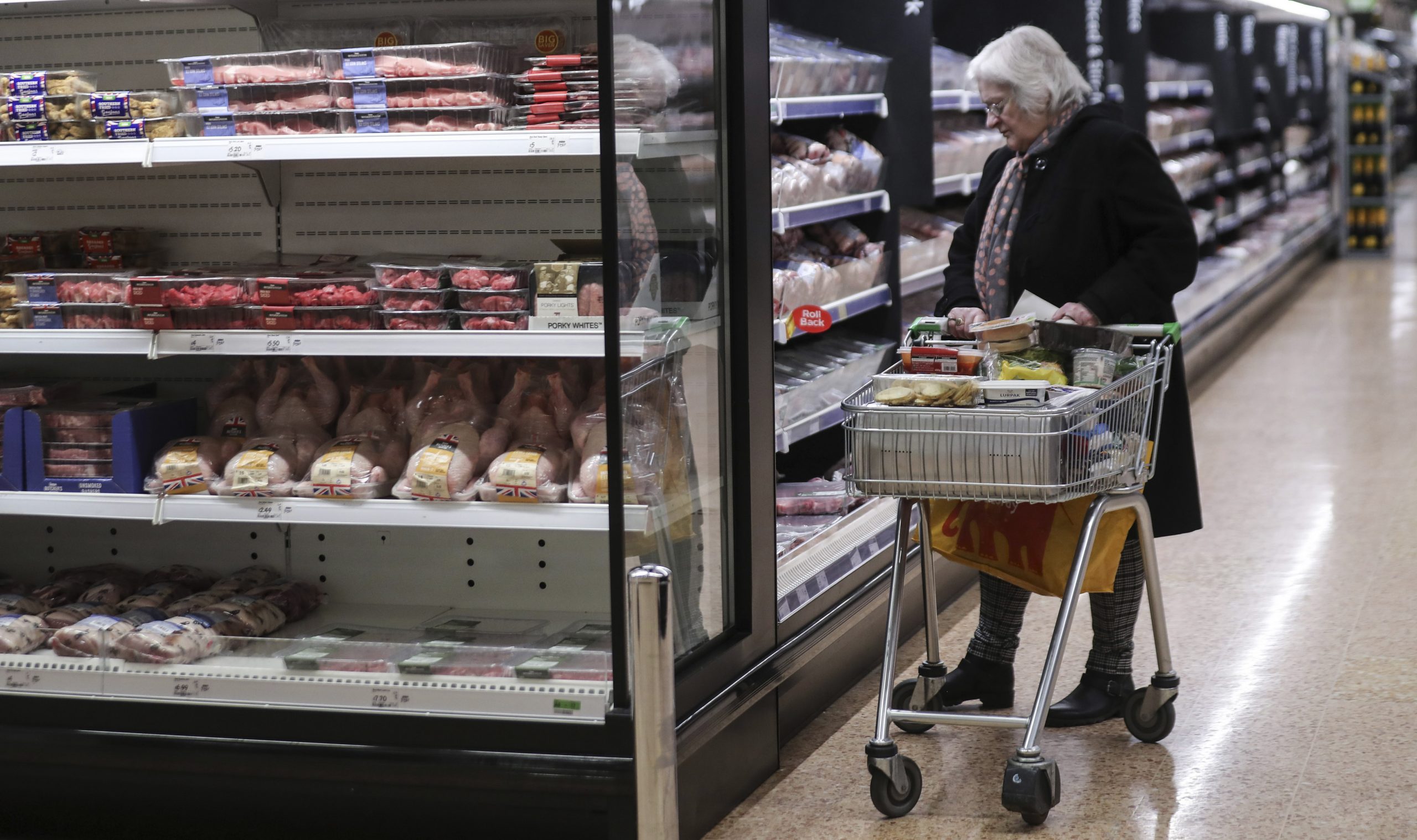
The turnover of the organized food retail trade continues its upward trend in 2023, showing as a whole a positive trend for the first quarter of the year of +8.2% (YTD data up to April 02, 2023), compared to the corresponding last year period of time.
As the NielsenIQ report states, this trend is mainly driven by food, both fresh (+8.1%) and processed, and beverages (+8.2%), mainly due to their significant contribution to the sales of sector.
In addition, the trends are positive for the major categories of household use, as well as personal care, which grow by +12.1% and +7.6% respectively. However, what is interesting is that if we break down the overall +8.7% FMCG trend, it is clear that this growth continues to be purely inflationary, as prices increased by 12.2%, while volumes respectively, they fell by -3.5%.
The impact of inflation
In this strongly inflationary environment, the share of private label products saw a significant increase, from 23.8%, which was at the end of 2022, to 25.4%, in the market that also includes the discount channel, while at the same time the manufacturers of branded products are trying to become even more competitive by further intensifying their promotional intensity, from 66.7% at the end of last year, to 68.2%.
The regions that are ahead
Further analyzing the market across the different store types, as well as the different geographic areas, as defined by NielsenIQ, some notable findings emerge, as well:
With regard to the different types of stores, the largest growth is shown by the largest stores (over 2500 m2), at +11.5%, which may be due, among other things, to the fact that buyers choose the largest stores, in which in addition to greater variety can find more offers available, as well as more competitive prices.
At the level of geographical regions, the regions of Crete and the Peloponnese continue to show the most positive growth trends (+15.4% and +6.8% respectively), but at the same time this increase in turnover seems to be associated with stronger inflationary pressures in these areas, compared to the country as a whole.
Products
Focusing on the progress of specific product categories, paper products shows particularly high growth rates (indicative: toilet paper: +48.6%, kitchen paper +37.0%), mainly due to the very large increase in their average price.
On the contrary, categories linked to the pandemic, such as hand sanitizers (-58.2%), as well as elastic gloves (-30.1%), continue their downward trend, while the seed oils category also shows a significant a decrease in its total sales (-16.9%) as compared to the high base of 2022, due to the outbreak of the war in Ukraine and the shortages that had been observed in the market.
As a more general comment on the first quarter of 2023, we could note that in terms of the course of fast-moving consumer goods there seems to be a relative de-escalation in terms of inflationary pressure, compared to the last quarter of 2022 (+13.2% vs . 12.2%). However, if we take into account the fact that in the first quarter of 2022 the market had already started to register a price increase of +3.3% this means that the current inflationary pressure is coming to be added to an already elevated base. At the same time, the downward trend in volumes appears to be more moderate in this year’s first quarter (-3.5%) than in 2022 (-7.0%), which indicates that consumers are showing a more moderate reaction to increase in prices (decrease in price elasticity).
Latest News

Greece Defines Continental Shelf Limits and Maritime Zones in Landmark EU Document
The Maritime Spatial Planning (MSP) framework represents a comprehensive approach to spatial planning and is crucial for the successful development of a blue and circular economy

EU Praises Greece’s RRF Progress as Revised Recovery Plan Nears Completion
Athens is preparing to submit its revised “Greece 2.0” Recovery and Resilience Plan after Easter, with a slight delay from the initial timeline but with the European Commission’s approval.

Greek €200M 10Y Bond to be Issued on April 16
The 3.875% fixed-interest-rate bond matures on March 12, 2029, and will be issued in dematerialized form. According to PDMA, the goal of the re-issuance is to meet investor demand and to enhance liquidity in the secondary bond market.

German Ambassador to Greece Talks Ukraine, Rise of Far Right & Tariffs at Delphi Economic Forum X
Commenting on the political developments in his country, the German Ambassador stressed that it was clear the rapid formation of a new government was imperative, as the expectations across Europe showed.

Athens to Return Confiscated License Plates Ahead of Easter Holiday
Cases involving court orders will also be excluded from this measure.

Servicers: How More Properties Could Enter the Greek Market
Buying or renting a home is out of reach for many in Greece. Servicers propose faster processes and incentives to boost property supply and ease the housing crisis.

Greek Easter 2025: Price Hikes on Lamb, Eggs & Sweets
According to the Greek Consumers’ Institute, hosting an Easter dinner for eight now costs approximately €361.95 — an increase of €11 compared to 2024.

FM Gerapetritis Calls for Unified EU Response to Global Crises at EU Council
"Europe is navigating through unprecedented crises — wars, humanitarian disasters, climate emergencies," he stated.

Holy Week Store Hours in Greece
Retail stores across Greece are now operating on extended holiday hours for Holy Week, following their Sunday opening on April 13. The move aims to accommodate consumers ahead of Easter, but merchants remain cautious amid sluggish market activity.

Green Getaway Ideas for Easter 2025 in Greece
Celebrate Easter 2025 in Greece the sustainable way with eco-farms, car-free islands, and family-friendly getaways rooted in nature and tradition.









































 Αριθμός Πιστοποίησης
Αριθμός Πιστοποίησης